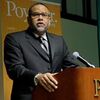The Taliban says that the US has agreed on a draft peace plan that would see all foreign troops out of Afghanistan in the next 18 months. The draft agreement comes after several days of talks between the Taliban and US envoy Zalmay Khalilzad in Qatar, aimed at ending the 17-year war. Khalilzad said the talks have been productive, and he plans to travel to Afghanistan to meet with government officials. The Taliban has so far refused to hold talks with the Afghan government, insisting that the US is the primary enemy. The deal reportedly includes promises from the Taliban that al-Qaeda and Daesh will not be allowed to use Afghanistan as a base of operations to attack the US and its allies. It's not clear when and if this draft agreement will be implemented.
A new report by the Congressional Budget Office says the US lost $11 billion due to the government shutdown and predicts the federal deficit will rise to $897 billion this year. That would be a hike of $118 billion over last year's deficit. The CBO is also forecasting slower economic growth this year. The partial government shutdown lasted 35 days, but a deal was reached on Friday to extend funding for parts of the federal government until February 15. President Donald Trump has threatened another shutdown if he doesn't receive funding for a border wall. How much more damage can the American worker take?
Treasury Secretary Steven Mnuchin says the US is targeting Venezuela's powerful, state-owned oil company with tough sanctions. The US no longer recognizes Nicolas Maduro as president of the South American nation. As for possible US military action, National Security Adviser John Bolton echoed President Trump and said "all options are on the table" in Venezuela. Bolton again warned Maduro not to harm any US diplomats in Venezuela. But is Senator Marco Rubio really calling the shots in the US-Venezuela conflict?
GUESTS:
Dr. Marvin Weinbaum — Scholar-in-residence and director of the Middle East Institute's Center for Pakistan and Afghanistan Studies.
Dr. Jack Rasmus — Professor of economics at Saint Mary's College of California and author of Central Bankers at the End of Their Ropes: Monetary Policy and the Coming Depression, who also writes at jackrasmus.com.
Dr. William Spriggs — Professor in, and former chair of, the Department of Economics at Howard University who also serves as chief economist to the AFL-CIO. In his role with the AFL-CIO, he chairs the Economic Policy Working Group for the Trade Union Advisory Committee to the Organization for Economic Cooperation and Development and serves on the board of the National Bureau of Economic Research.
Dr. Anthony Monteiro — Author, activist, DuBois Scholar and former professor in the African American Studies Department at Temple University.
We'd love to get your feedback at radio@sputniknews.com



